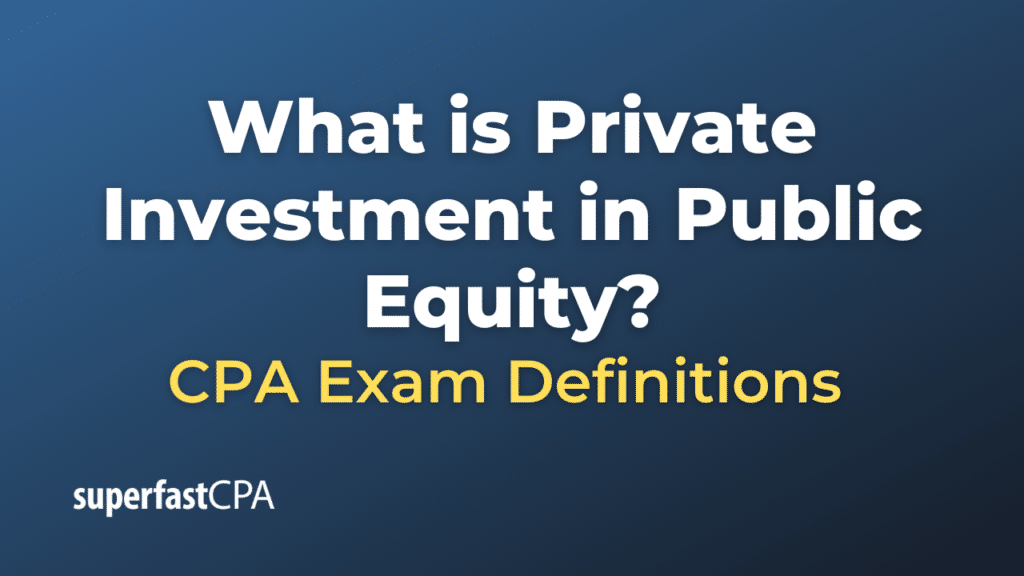Private Investment in Public Equity
Private Investment in Public Equity (PIPE) is a type of investment that involves the selling of publicly traded securities, often shares of common stock, to private investors at a discount to the current market price. PIPE transactions can also involve preferred shares, convertible securities, or debt securities.
PIPEs are a way for public companies to raise capital quickly, without needing to undergo a secondary public offering, which can be a lengthy and costly process. They can be particularly useful for smaller, less liquid companies that may have trouble raising capital through more traditional methods.
For investors, PIPEs can be attractive because they offer the opportunity to purchase shares at a discount. However, they can also be risky, particularly because the discounted price often reflects some level of distress in the company. Additionally, the securities purchased in a PIPE transaction are typically restricted from being sold for a certain period of time, adding a level of illiquidity to the investment.
Here’s a hypothetical example of a PIPE transaction:
Let’s say a publicly traded biotech company, BioPharma Inc., is in need of immediate funding for a new research project. Instead of going through a secondary offering, the company decides to offer 5 million shares to a private equity firm at a 10% discount to the current market price. The private equity firm agrees to the deal, providing BioPharma Inc. with the capital it needs much faster than if the company had pursued a secondary offering. The private equity firm is betting that BioPharma Inc.’s new project will be successful and increase the value of its shares over time.
Example of Private Investment in Public Equity
A real-world example of a Private Investment in Public Equity (PIPE) transaction.
In April 2020, as the world grappled with the financial impact of the COVID-19 pandemic, Carnival Corporation, the world’s largest leisure travel company, announced it had raised approximately $6.4 billion. This came through a combination of a public offering of shares, a private offering of senior secured notes, and a Private Investment in Public Equity (PIPE).
The PIPE involved Saudi Arabia’s sovereign wealth fund, the Public Investment Fund (PIF). Seeing an opportunity with the cruise line operator’s shares significantly depressed due to the pandemic’s impact on the travel industry, the PIF purchased 8.2% of Carnival’s common stock.
Carnival raised capital to bolster its cash position amid a business environment in which their cruises were largely suspended. Meanwhile, the Saudi PIF obtained a significant stake in the company at a depressed price, betting on the long-term recovery and profitability of the company.
This example shows how a PIPE can be a strategy for a public company to raise capital quickly during challenging times, and how it can present an opportunity for large investors to acquire a substantial stake at a potentially attractive price.













